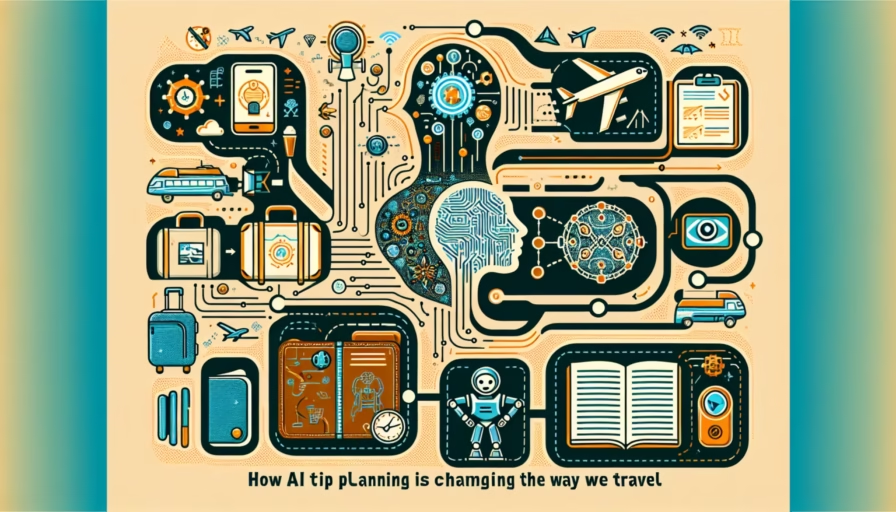Introduction: The Emerging Era of Agentic AI
As the sphere of artificial intelligence (AI) continues its rapid evolution, a particular advancement Agentic AI is capturing significant attention due to its unique potential for autonomous decision-making. In an era where AI systems are increasingly impactful, understanding the nuances of agentic AI can provide insights into the next frontier of intelligent automation. What sets agentic AI apart, and why is its emergence crucial for future technological landscapes? This article delves into the core functionalities, applications, and implications of agentic AI.
Features & Benefits of Agentic AI: Unveiling Autonomy in Action
At the heart of agentic AI lies the capacity for autonomy—this form of AI transcends traditional models by embedding decision-making processes within the system itself, independent of human intervention. Key features include:
- Decision Autonomy: Unlike conventional AI, agentic AI systems can operate independently, setting goals and
executing tasks without the need for continuous human guidance. - Real-Time Adaptability: Utilizing advanced algorithms, these systems learn and adapt from real-time data,
honing their strategies to meet specific objectives efficiently. - Environmental Awareness: By processing multimodal data inputs, agentic AI achieves a heightened
understanding of its operational environment, enhancing precision in tasks.
The benefits are evident in practical applications. Agentic AI is streamlining processes across industries such as customer
service automation and industrial operations. For example, agentic systems can dynamically manage supply chains, predicting
demand fluctuations and adjusting logistics in real-time, thereby optimizing efficiency and reducing waste.
What Is Agentic AI?
Agentic AI refers to AI systems designed to operate autonomously, making decisions and taking actions without direct human intervention. These systems are capable of:
-
Autonomous Decision-Making: Making choices based on data analysis and predefined objectives.
-
Adaptability: Adjusting to new information and changing environments in real-time.
-
Goal-Oriented Behavior: Pursuing specific outcomes through strategic planning and execution.
-
Learning from Experience: Improving performance over time by learning from past actions and outcomes.
This level of autonomy allows Agentic AI to handle complex, multi-step tasks that were previously managed by humans.
How Does Agentic AI Work?
Agentic AI systems function through a combination of advanced technologies:
-
Perception: Gathering and interpreting data from various sources.
-
Reasoning: Analyzing information to make informed decisions.
-
Planning: Developing strategies to achieve set goals.
-
Action: Executing tasks based on plans and adapting as needed.
These systems often utilize machine learning algorithms, natural language processing, and reinforcement learning to enhance their capabilities.
Comparison with Generative AI: Understanding Distinctions
To truly appreciate the innovation of agentic AI, it’s essential to draw distinctions from generative AI—the latter being widely
recognized through platforms such as ChatGPT.
- Generative AI: Primarily content-centric, designed to produce outputs based on provided inputs, reliant on
user prompts, without inherent goal-setting capabilities. - Agentic AI: Equipped for autonomy, proactively setting goals, and engaging in decision-making processes
without external input, capable of altering its course based on new data insights.
The distinction is fundamental—generative AI serves as a tool for human assistance in creativity and information generation,
whereas agentic AI represents a paradigm shift towards independent, intelligent workflows.
Pros and Cons: Evaluating Agentic AI’s Impact
The integration of agentic AI into industries brings distinct advantages:
- Efficiency Gains: Automated decision-making enhances productivity and accuracy.
- Scalability: Agentic AI systems scale operations without proportionate increases in human oversight.
However, these benefits come with specific challenges:
- Complexity: Implementing and maintaining agentic AI systems demands substantial expertise and resources.
- Ethical Risks: Autonomy raises ethical concerns regarding accountability and potential biases, necessitating
robust frameworks to prevent misuse.
“While agentic AI systems herald advancements in automation and decision-making, the necessity for meticulous ethical
guidelines cannot be overstated. As we stand at the threshold of autonomous intelligence, responsibility remains paramount.”
Final Thoughts: Navigating the Future with Agentic AI
Agentic AI is set to reshape numerous sectors by allowing systems to make informed, autonomous decisions that mimic strategic
human reasoning. As industries increasingly adopt these intelligent systems, understanding the balance between technological
potential and ethical constraints becomes crucial. Organizations must strive for transparency, accountability, and ethical
integrity in deploying agentic AI, ensuring that its transformative power is harnessed responsibly and inclusively.
The journey into the world of agentic AI is not just about technological innovation; it’s also about forging a path that
synchronizes with societal values, fostering a future where artificial intelligence serves human interests across domains.
Staying informed and adaptive in this ever-evolving landscape will empower professionals and businesses to leverage these tools
effectively, for both existing challenges and those yet to come.

